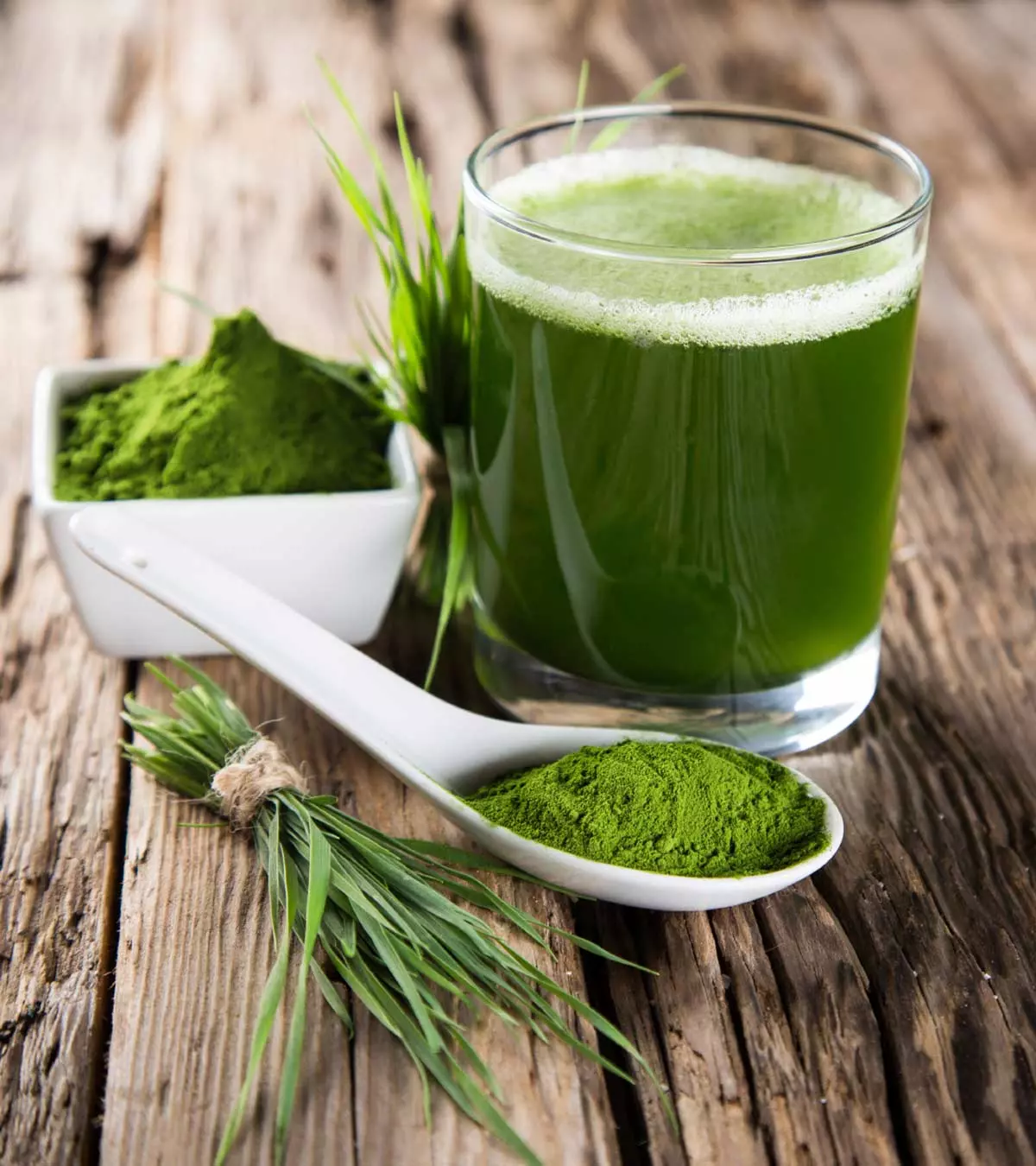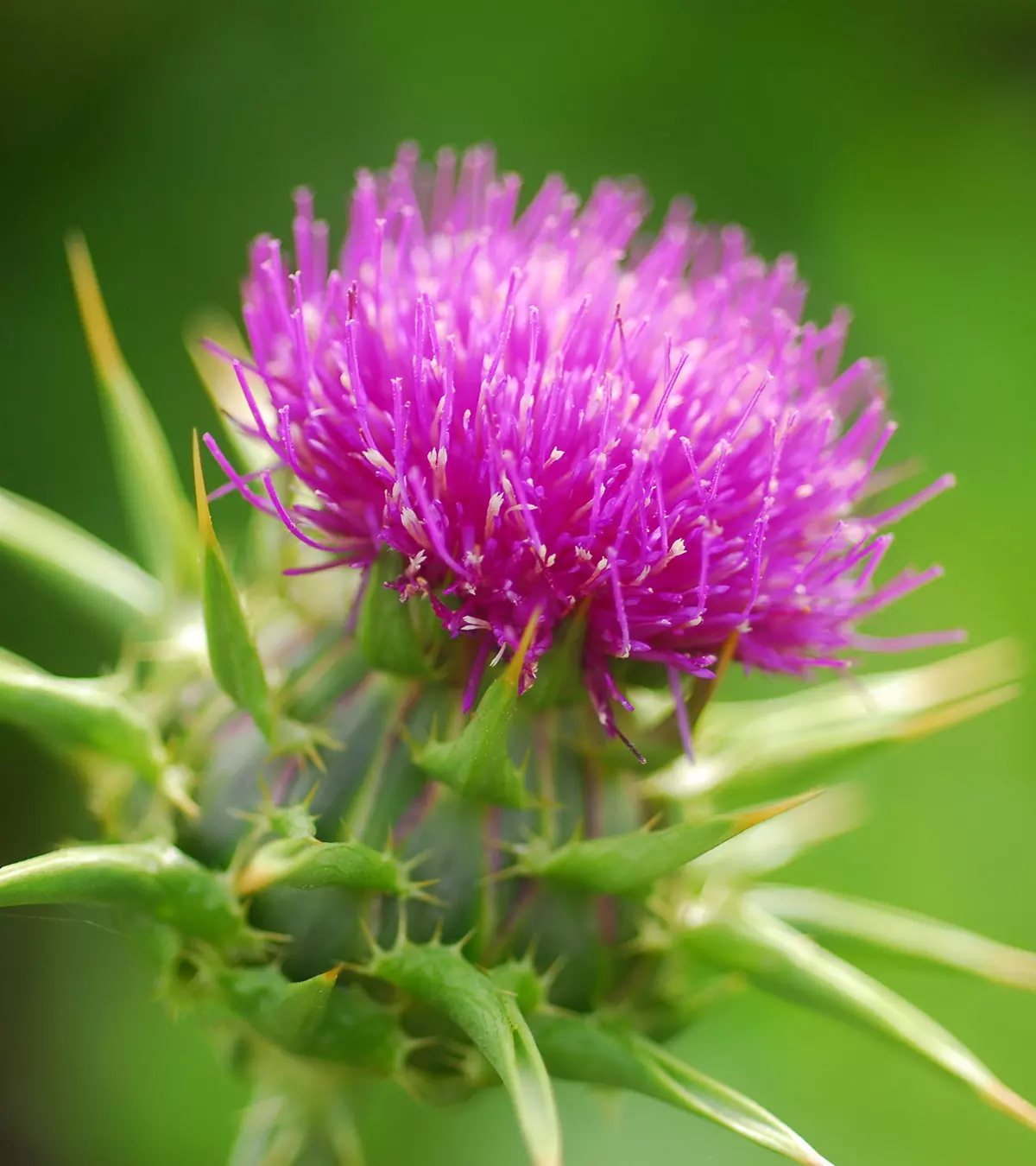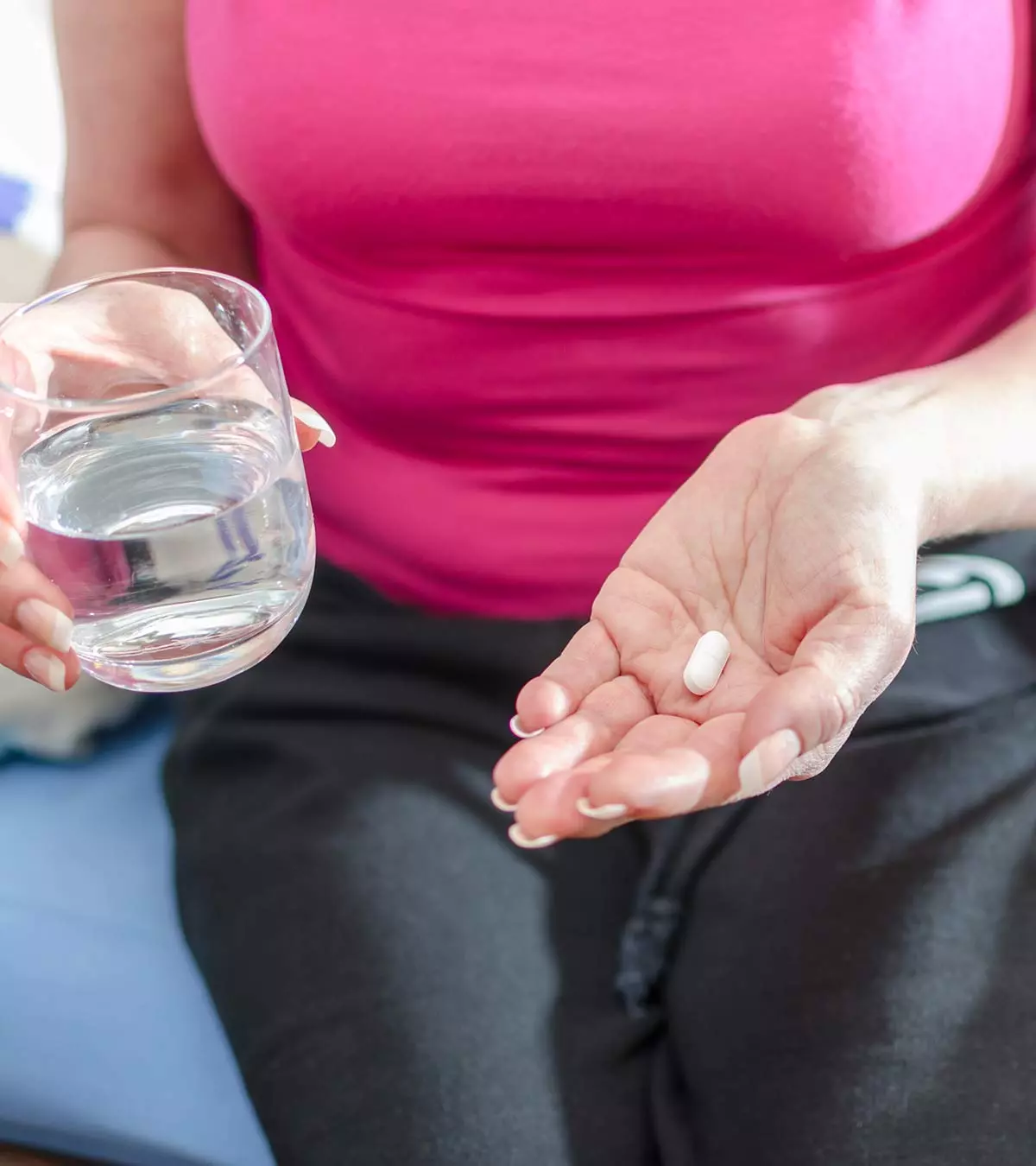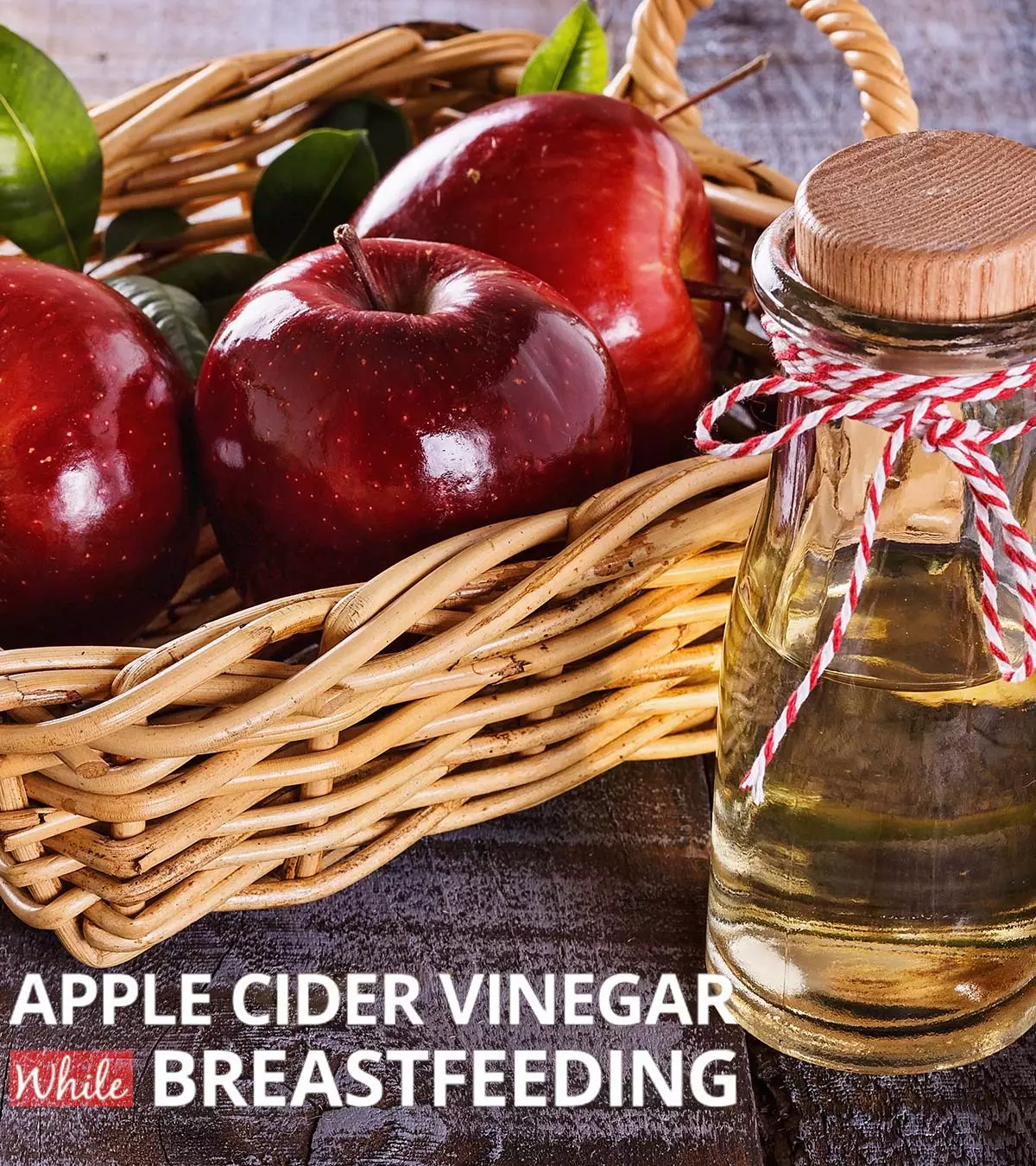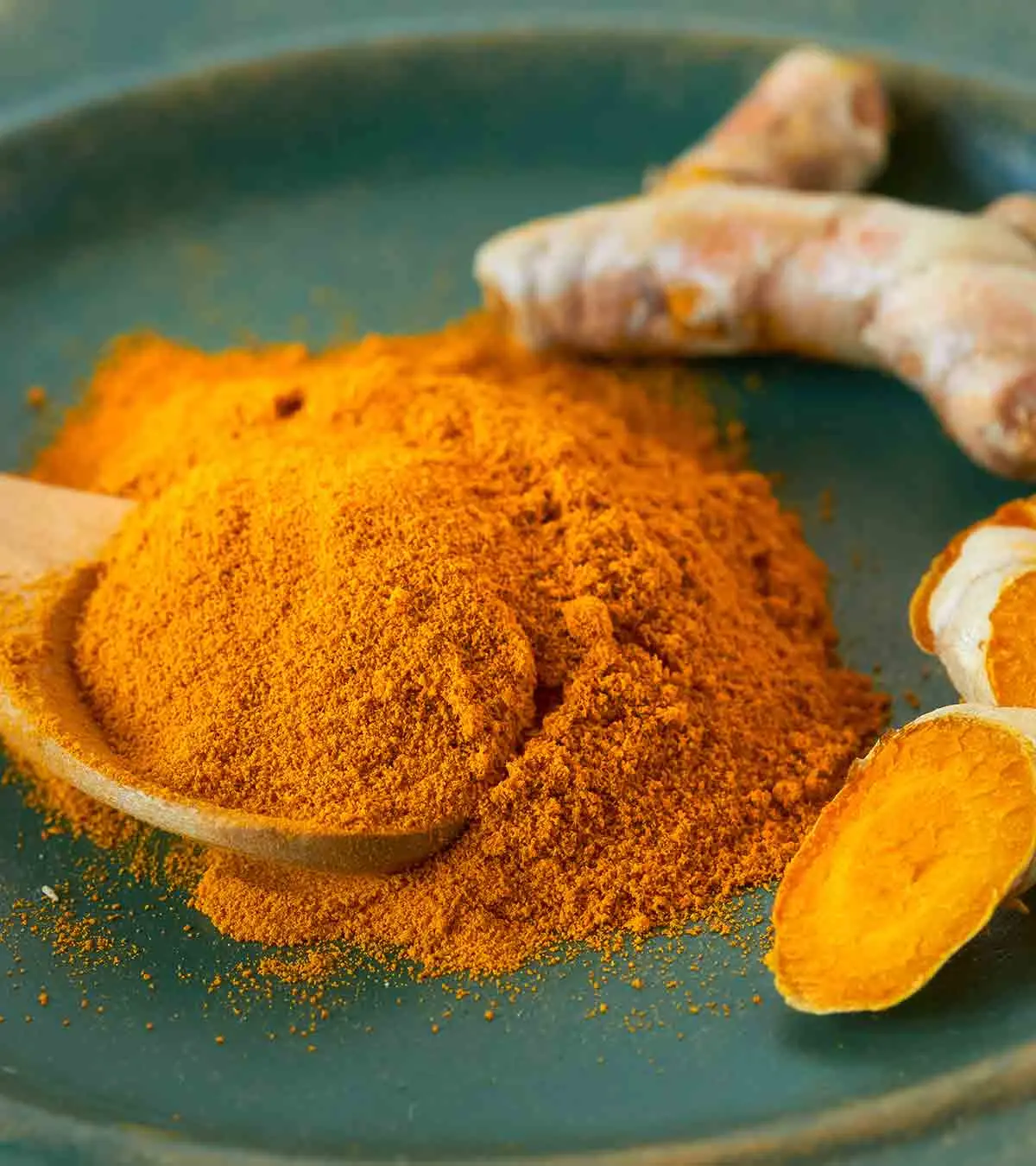
Image: iStock
Turmeric is a common spice derived from the Curcuma longa plant native to South Asia (1). It is used in traditional medicine to promote postpartum recovery and boost milk production. However, you might want to know if it is safe to consume turmeric during breastfeeding.
Turmeric is rich in curcuminoidsiThese are phenolic compounds added to foods as a therapeutic additive that help in conditions such as inflammation and anxiety and are also used as pigment and spice. , especially curcumin, which possess therapeutic and medicinal properties (2). These bioactive compounds have health-promoting effects, but no data supports turmeric’s use to enhance breast milk production and supply. Hence, using turmeric for lactation-related purposes must be done only after consulting an expert.
Read on as we tell you all about the safety of turmeric when breastfeeding, its possible health benefits and side effects, and ways to include turmeric in your diet.
Key Pointers
- Turmeric is a good source of omega-3 fatty acid and bioactive compounds.
- The use of turmeric as a galactagogue is not scientifically proven.
- Consumption of turmeric helps boost immunity, reduces inflammation, and manages cholesterol.
- It is advised to store turmeric away from the sunlight to avoid deterioration of its pharmacological properties.
- To use turmeric during breastfeeding You can add turmeric to salads, curries, and milk.
Is It Safe To Consume Turmeric During Breastfeeding?

Image: IStock
Yes, turmeric can be used while breastfeeding. The U.S. Food and Drug Administration considers turmeric as “generally recognized as safe” (GRAS) as a food ingredient (3).
In some cultures, turmeric is considered a galactagogueiIt can be any food believed to boost the milk supply in humans and other animals. For example, fenugreek, milk thistle, and leafy greens. , an ingredient that increases breast milk production in nursing mothers. However, there is no scientific evidence that supports the use of turmeric as a galactagogue (4). There is also no data to suggest the safe intake limit of turmeric when breastfeeding. Therefore, it is good to consume turmeric only as a flavoring agent in foods. If you wish to consume turmeric or a turmeric-containing nutritional supplement for lactation-related purposes, then you may consult a lactation specialist.
Nutritional Value Of Turmeric
Turmeric contains vital micronutrients and bioactive compounds such as curcumin that are essential for the maintenance of overall maternal and infant health (1). It is good to add turmeric in controlled amounts in your daily diet.
The following table contains the approximate composition of one tablespoon, i.e., one serving of turmeric powder, and the recommended amount of each nutrient per day (RDA).
| Name | Amount | RDA |
|---|---|---|
| Fiber, total dietary | 2.13g | – |
| Calcium, Ca | 15.8mg | 1,300mg |
| Iron, Fe | 5.17mg | 10mg |
| Magnesium, Mg | 19.6mg | 360mg |
| Phosphorus, P | 28.1mg | 1,250mg |
| Potassium, K | 196mg | 2,500mg (AI) |
| Sodium, Na | 2.54mg | 1,500mg (AI) |
| Manganese, Mn | 1.86mg | 2.6mg (AI) |
| Folate, total | 1.88µg | 500μg |
| Choline, total | 4.62mg | 550mg (AI) |
AI = Adequate intake (AI) is the recommended average daily intake level of apparently healthy people. It is used when an RDA cannot be determined.(5)Sources: U.S. Department of Agriculture (6) and Oregon State University (7)Besides the nutrients mentioned above, turmeric is also considered as a good source of the omega-3 fatty acid,linolenic acidiIt is an omega-3 essential fatty acid, available in foods such as flaxseeds, walnuts, chia, and vegetable oils, and used to treat heart and blood vessel disorders. , and certain bioactive compounds
. All these components give turmeric the potential to provide some health benefits that are worth a check.
Health Benefits Of Turmeric While Breastfeeding
There are several suggested maternal health benefits of turmeric. However, not all of them are backed by scientific evidence. Below is a list of scientifically-backed health benefits of turmeric.
1. Immunity: Curcumin is the yellow-orange bioactive compound found in turmeric. The substance has long been associated with medicinal properties that help strengthen the immune system and fight mild infections, like sore throat (8). Curcumin’s true potential has now been realized by modern medicine. Various studies show that curcumin has immunomodulatoryiIt refers to a substance that can modulate or suppress the immune system and control and fight diseases such as infection and cancer. , anti-proliferative, and antimicrobial properties that could support the treatment of chronic diseases and mild infections (9). Turmeric also contains other valuable nutrients that can help boost immunity.
 Quick tip
Quick tip
Image: IStock
2. Digestive health: Studies show that curcumin holds pharmacological properties that could prove useful in treating various digestive disorders. Some of the common digestive issues that women face postpartum are constipation, flatulence, and gastric refluxiIt is a condition where stomach acid flows back into the esophagus (food pipe), causing chest pain. . For all these digestive concerns, turmeric has proven its possible effectiveness (10) (11). In fact, some studies have found that the use of turmeric can potentially protect the GI system through its anti-inflammatory effects (12).
3. Mental health: Postpartum depression can occur due to a combination of mental and physical factors (13). Research in the field of psychoneuroimmunology (PNI) reveals that depression is associated with inflammation. Thus, PNI suggests the use of anti-inflammatory products that could help reduce inflammation. Turmeric has strong anti-inflammatory properties that could prove useful in enhancing your mood and helping fight postpartum depression (14) (15). Curcumin increases DHA in the brain and helps reduce anxiety (16).
4. Inflammation: Some women experience joint and back pains after pregnancy. One of the reasons is inflammation and is most commonly known as inflammatory arthritisiA condition of joint pain and inflammation that reduces motion and increases stiffness. (17). Curcumin has a strong anti-inflammatory activity, which could provide symptomatic relief from joint and back pains (18). Women experiencing arthritis after pregnancy may also consider including turmeric in their diet.

Image: Shutterstock
5. Antioxidant effects: Curcumin is characterized by its high antioxidant activity, which is comparable to vitamin C and is more than ten times higher than the activity of the vitamin E. The strong antioxidant profile of the compound could help mitigate the effects of oxidative damage on the body (10).
6. Cholesterol management: The levels of cholesterol and triglyceridesiThese are the most common type of fats in the body. The calories obtained from butter, oil, and other fats are converted into triglycerides and stored in the fat cells to be later used as energy. increase during pregnancy as they are crucial for the growth and development of the fetus and the production of hormones (19). These lipid levels decrease postpartum. However, sometimes the cholesterol levels do not go back to normal, leading to health problems. Turmeric is often used in Ayurveda as one of the potent natural remedies to regulate cholesterol levels. A research study demonstrated that turmeric extract could help reduce the synthesis of cholesterol and triglycerides (20) (21).
7. General benefits: Curcuminoids in turmeric possess antioxidant, analgesic, anti-inflammatory, antiseptic, anticarcinogenic, chemopreventive, antiviral, antibacterial, antifungal, and antiplateletiIt is a class of medication that prevents platelet aggregation, preventing blood clots. activity (22). Thus, daily intake of turmeric with a regular diet can help in the long run.
Turmeric is a healthy addition to your diet. However, its effectiveness can only be assured when it is selected and stored right. If you have been using turmeric before pregnancy and during, then you can continue to do so. Do not add a new element just because you are breastfeeding.
 Caution
CautionSelection And Storage Of Turmeric
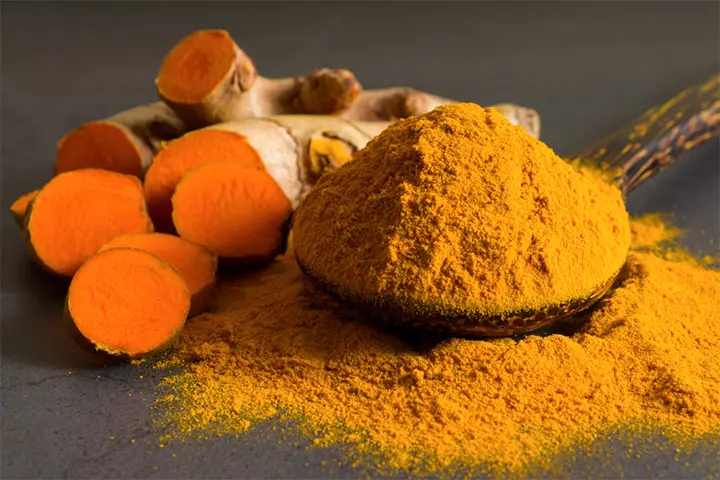
Image: Shutterstock
Turmeric is available in two forms – dried rhizome and turmeric powder. There are some other products like essential oil, curry powder, and oleoresins that are derived from either of these forms (23). You can purchase any of these products as per your preference and requirement. But while you purchase, make sure that you buy good quality or organic products from a reputable store.
Out of the various turmeric types available worldwide, Indian turmeric is considered the best due to its high quality and dense constitution of important bioactive compounds.
Once purchased, turmeric should be stored in an airtight container and away from direct sunlight. This is crucial as turmeric contains curcuminoids, the color constituents of turmeric that deteriorate with light. This impacts not only the color but also certain pharmacological properties.
Ways To Add Tumeric In The Diet

Image: IStock
Turmeric is generally used to prepare golden milk and turmeric tea. It can also be added to soups, salads, and curries or used as one of the ingredients to tenderize meat. You may also add it to canned broths and pickles as a preservative. However, you must keep the quantity in check—use a maximum of one teaspoon daily to prevent any potential side effects.
However, the quantity must be kept in control as the flavor of the spice could be overpowering.
 Point to consider
Point to considerFrequently Asked Questions
1. Can turmeric reduce or decrease milk supply?
In some cultures, turmeric is considered a potential galactagogue. However, there is no scientific evidence to support this belief. Likewise, there is no scientific proof that turmeric consumption decreases milk supply.
2. Can I take turmeric supplements while breastfeeding?
Turmeric supplements generally are not regulated by the FDA. The manufacturers are responsible for ensuring the safety of these supplements. Also, these supplements can have multiple ingredients that may or may not be listed on the pack. It is best to avoid supplements while breastfeeding unless approved by your doctor.
3. Are there any interactions between turmeric and medications or supplements that a breastfeeding mother should be aware of?
Turmeric contains curcumin as an active ingredient. High doses of curcumin may interact with certain medications, mostly occurring with concentrated curcumin supplements. For example, it may reduce the effects of painkillers such as indomethacin, aspirin, ibuprofen, or acetaminophen. Also, it may increase the risk of bleeding in individuals taking blood thinners, including warfarin and cancer medications (26).
4. What are the potential risks of taking turmeric while breastfeeding?
While turmeric is generally considered safe for most people when taken in tea or food, there are potential risks for some individuals. People allergic to turmeric may experience rash, hives or abdominal pain upon consuming it (26).
5. How much turmeric is safe to take while breastfeeding?
Turmeric in amounts used as a flavoring agent in food is considered safe during breastfeeding. However, there is insufficient safety data for lactating women regarding higher amounts of turmeric. It is better to avoid consuming turmeric in excessive amounts while breastfeeding (27).
Turmeric is usually considered to be safe for consumption during breastfeeding. Turmeric is known to have several health benefits, such as improved immunity, better digestion, improved mood, anti-inflammatory effects, and cholesterol management. In some cultures, turmeric is considered to be a galactagogue. However, you should consult a nutritionist or gynecologist about the permissible daily amount of turmeric you can consume. Further, while it is safe to add small amounts of turmeric to your diet, check with your doctor before taking any turmeric supplements.
Infographic: Potential Benefits Of Turmeric In Breastfeeding Women
Turmeric is a well-known Indian herb and spice enriched with bioactive compounds that possess various health benefits. So, if you’re contemplating whether to include turmeric in your diet after giving birth, look at the infographic below for all the health benefits it offers breastfeeding women. Illustration: Momjunction Design Team
References
1. Sahdeo Prasad and Bharat B. Aggarwal.; Turmeric, the Golden Spice; National Center For Biotechnology Information
2. Curcumin; Pubchem; National Center For Biotechnology Information
3. Turmeric.; National Center For Biotechnology Information
4. Alessandra N. Bazzano et al.; A Review of Herbal and Pharmaceutical Galactagogues for Breast-Feeding; National Center For Biotechnology Information
5. Adequate Intake; European Food Safety Authority
6. Spices, turmeric, ground (172231); Food Data Central; USDA
7. Micronutrient Needs During Pregnancy and Lactation; Oregon State University
8. Sayantan Bose et al.; Curcumin and tumor immune-editing: resurrecting the immune system; National Center For Biotechnology Information
9. Jagetia GC and Aggarwal BB; “Spicing up” of the immune system by curcumin.; National Center For Biotechnology Information
10. Pietro Dulbecco and Vincenzo Savarino; Therapeutic potential of curcumin in digestive diseases; National Center For Biotechnology Information
11. Matthew C.Fadus et al.; Curcumin: An age-old anti-inflammatory and anti-neoplastic agent; Science Direct
12. Kednapa Thavorn et al.; Efficacy of turmeric in the treatment of digestive disorders: a systematic review and meta-analysis protocol; National Center For Biotechnology Information
13. Postpartum Depression Facts; The National Institute of Mental Health Information Resource Center
14. Shrinivas K. Kulkarni et al.; Antidepressant activity of curcumin: involvement of serotonin and dopamine system; Springer
15. Curcumin improves memory and mood, new UCLA study says; UCLA
16. AiguoWu et al.; Curcumin boosts DHA in the brain: Implications for the prevention of anxiety disorders; Science Direct
17. Inflammatory Arthritis and Pregnancy; Arthritis Foundation
18. Yves Henrotin et al.;Curcumin: a new paradigm and therapeutic opportunity for the treatment of osteoarthritis: curcumin for osteoarthritis management; National Center For Biotechnology Information
19. Pregnancy and Blood Fats; Heart UK
20. Iwan Budiman et al.; Potency of turmeric (Curcuma longa L.) extract and curcumin as anti-obesity by inhibiting the cholesterol and triglycerides synthesis in HepG2 cells; National Center For Biotechnology Information
21. Si Qin et al.; Efficacy and safety of turmeric and curcumin in lowering blood lipid levels in patients with cardiovascular risk factors: a meta-analysis of randomized controlled trials; National Center For Biotechnology Information
22. Augustine Amalraj et al.; Biological activities of curcuminoids, other biomolecules from turmeric and their derivatives – A review; National Center For Biotechnology Information
23. TURMERIC – Post-harvest Operations; FAO
24. Boosting Immunity With Golden Milk; Sutter Health
25. Turmeric; Mount Sinai
26. Turmeric Benefits; Johns Hopkins Medicine
27. Turmeric; National Library of Medicine
Community Experiences
Join the conversation and become a part of our nurturing community! Share your stories, experiences, and insights to connect with fellow parents.
Read full bio of Jyoti Benjamin
Read full bio of Swati Patwal
Read full bio of Rohit Garoo
Read full bio of Anindita Ghatak









